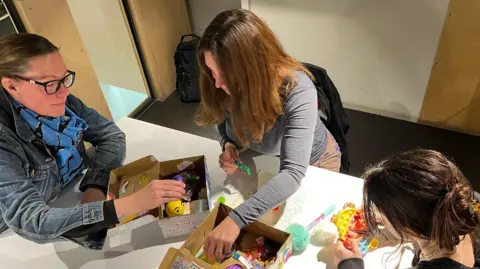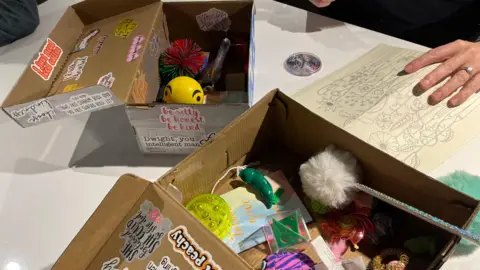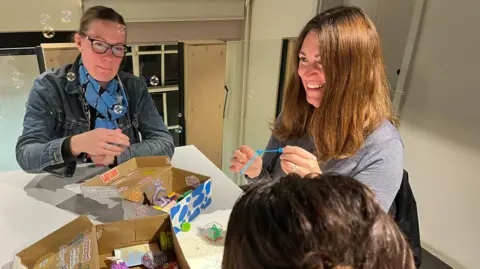How fidget toys could help reduce youth self-harm
 BBC
BBCAs Eloise rifles through her box of fidget toys, she feels her anxiety and frustration leave her.
The 16-year-old from North Yorkshire has struggled with self-harm since the age of 12 and has used a self-help toolkit - a box full of sensory objects - to reduce anxiety.
Now she is backing a study led by Leeds and York Partnership NHS Foundation Trust which is looking into whether these kits should be brought in to help children as young as primary school age with their mental health.
Eloise hopes this will help more young people like her, saying: "Just having something sensory and soothing would have been really helpful to me."

She said she first thought about self-harm as a way of coping with her overwhelming feelings of frustration.
“I knew some other people were acting on it, and then it clicked in my head that there was a possibility that it was something I could do."
The teenager said when her self-harm marks were discovered, she tried to lie to her family about where she had got them from.
She remembered the first time she told her mum about her self-harming while sat at the breakfast table.
“I asked her if, when she had been angry, had she thought about hurting herself,” Eloise said.
“She said no, that’s not something you usually think about.”
'Does get better'
Eloise said she had not self-harmed for more than five months and was “feeling a lot better” since getting help.
“Sometimes help does not immediately work,” she said.
“But you need to find the right type and it does get better.”
Eloise said that if people are “in a state of self-harm, then it is too late.”
She has now urged young people aged between 11 and 18 who self-harm to join the Divert project, a study funded by the National Institute for Health Research.
The study is investigating how self-help toolkits, which include fidget toys, diaries and other helpful items, could be used by young people.
They are currently used by young people who are severely mentally unwell in inpatient units.

Child and adolescent consultant psychiatrist Dr Clare Fenton said: “It does not replicate therapy, it is for those moments in between therapeutic sessions when people are struggling.”
She hoped the kits could be used as a way to stop young children having the urge to self-harm.
She added: “These self-help toolkits could be deployed almost universally as an early intervention for young people, possibly even before they reach secondary school, so that they know there are other ways to cope.”
If you are affected by the issues in this story, help and support is available via the BBC Action Line.
Listen to highlights from North Yorkshire on BBC Sounds, catch up with the latest episode of Look North or tell us a story you think we should be covering here.
